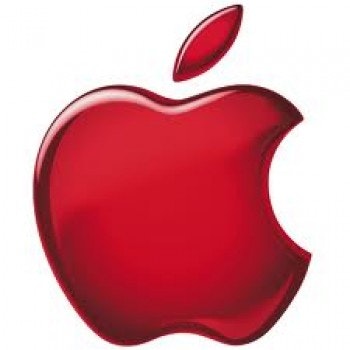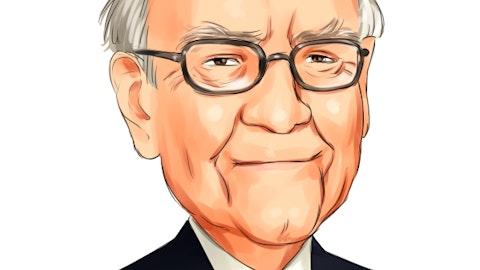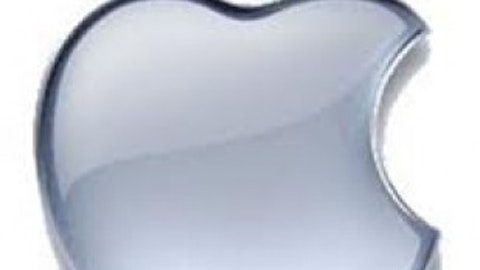Although digital download sales have become the saving grace of the music industry, we’re already seeing a shift in digital music services from downloads to subscription streaming. Last fall, rumors spread that Apple Inc. (NASDAQ:AAPL) was working on a subscription service of its own, but have since faded with the onslaught of iWatch and iTV speculation. While investors and fanboys wait with bated breath for the next big innovation, an Apple music streaming service is a great opportunity, if not a necessity, for the extension of the iTunes brand.
In 2012, streaming service subscriptions accounted for over 10% of total digital music revenues, according to the IFPI. That number is significantly higher in Europe, at about 20%, and particularly high in Sweden (where Spotify originated) and France (home of Deezer).
Whereas download sales improved 12% worldwide last year, subscriber numbers improved 44%. And while digital music still only accounts for about one-third of total music sales, there’s no doubt that digital subscription services disrupt the digital download market.
Looking at the countries with significantly higher subscription adoption, one sees an inverse proportion of internet users downloading songs. France and Sweden, two of the three countries with the most music subscription users per capita, were in the bottom three of countries profiled for digital downloads by Ipsos MediaCT. As subscription services continue to grow in popularity, digital download stores such as iTunes will see diminished sales growth.

Big names moving in
Other big names in tech have already moved into the digital streaming territory. Microsoft Corporation (NASDAQ:MSFT) has long experimented with a subscription music model ever since it released its Zune mp3 player. More recently, the company launched the Xbox Music Pass in an effort to leverage its Xbox brand as the home entertainment hub.
Microsoft Corporation (NASDAQ:MSFT)’s strength in selling subscription services is evident in its 46 million Xbox Live subscribers (out of 76 million total consoles sold), generating over $1 billion in revenue per year. Xbox Music Pass extends the Xbox user base, compelling the large audience to buy new Windows based devices – PCs, tablets, phones – in order to take full advantage of the service.
Microsoft Corporation (NASDAQ:MSFT) also has the advantage of being ubiquitous on every new Windows 8 device, encouraging new computer purchasers to give it a try. As Windows 8 replaces older versions of the software, subscription rates ought to climb as trials turn into subscriptions. In essence, Xbox Music Pass is Microsoft’s attempt at developing an ecosystem like Apple’s iTunes that leads to sales of more Windows and Xbox devices in the future.
Google Inc (NASDAQ:GOOG) technically already has a foot in music streaming with YouTube. VEVO is the most viewed channel on YouTube, streaming 4 billion music videos per month. What’s more, YouTube has even become a tool for music discovery. Think about it; what would Gangnam Style be without YouTube?
Now, Google Inc (NASDAQ:GOOG) is reportedly talking with big labels in an effort to launch its own streaming service. With Google’s huge presence in the smartphone market, this could be particularly distressing to Apple’s biggest source of revenue. Android phones start to look even more competitive when they come with free unlimited music streaming. Of course, Google wouldn’t cut out non-Android devices, but the service may not integrate as nicely, especially considering Apple’s recent bout with Google-centric apps.
Digital radio
According to Stephen Bryan of Warner Music Group, “Half of music consumers prefer a leanback, radio style experience” (IFPI Digital Music Report pg 17). Digital radio services such as Pandora Media Inc (NYSE:P) and Slacker Radio continue to grow in popularity. In fact, Pandora accounts for 8% of all radio listening as it gains penetration in automobiles and the growing number of internet connected devices.
The curated experience led to the growth in Spotify, as users can access playlists created by popular music critics and magazines, as well as friends. Not to mention the service also integrates a Pandora-like radio option.
Interestingly, this is an area where Apple Inc. (NASDAQ:AAPL) could have an advantage. The songs the company uses in its commercials often boom in popularity shortly after they start running. Whether this is due to their promotion on iTunes or vice versa, an Apple curated digital radio platform could draw a lot of listeners looking for new music.
More importantly, Apple, as the leading digital music source, has tons of data about the songs people download. Using this information ought to make the creation of a digital radio service straightforward for Apple.
Google Inc (NASDAQ:GOOG), too, has a funnel for curated radio stations based on YouTube plays. Viral videos could give Google a leg up on trends such as the sudden popularity of Baauer’s Harlem Shake, which hit number 1 on iTunes a week after the video sensation exploded onto the scene. Google also has thousands of data points from YouTube music video plays that indicate users’ tastes quite accurately.
Risks
The move into a streaming service will undoubtedly cannibalize iTunes sales. Like I said before, as streaming grows, downloads slow.
The exception appears to be South Korea, where iTunes equivalent MelOn offers both streaming and downloading. While downloads aren’t quite as high in Korea as they are in the U.S., the number of users downloading songs in Korea trounces other popular streaming countries France and Sweden. The marketing geniuses at Apple ought to be able to replicate similar success with iTunes downloads.
The bigger risk is if Apple Inc. (NASDAQ:AAPL) fails to move into the streaming music service area. The company has, by far, the most to lose, as it made up 60% of all digital music downloads last year. If Apple plans to maintain its dominance in the music industry, it must fend off growing competition from Microsoft Corporation (NASDAQ:MSFT) and now Google Inc (NASDAQ:GOOG), who both have designs in the mobile phone market as well.
Apple Inc. (NASDAQ:AAPL) is better positioned than either Microsoft or Google to enter the market, although the latter is not far behind. Nevertheless, it can’t delay progress in the field very long before it starts losing download sales to streaming competitors.
The article Why Apple Needs Music Streaming originally appeared on Fool.com.
Copyright © 1995 – 2013 The Motley Fool, LLC. All rights reserved. The Motley Fool has a disclosure policy.





